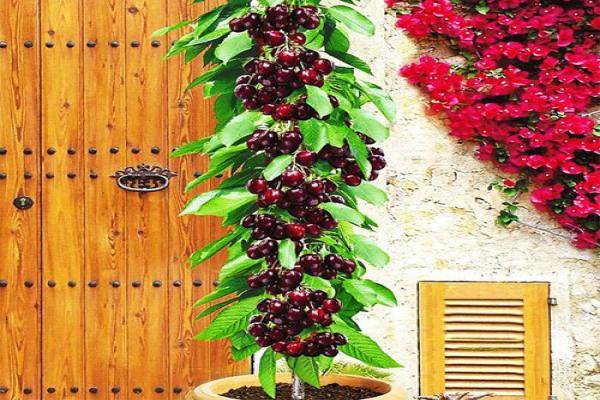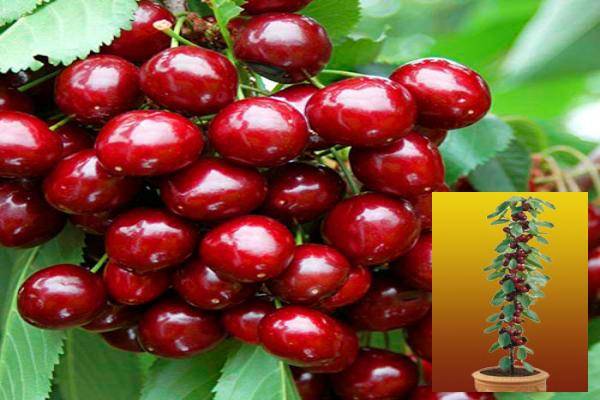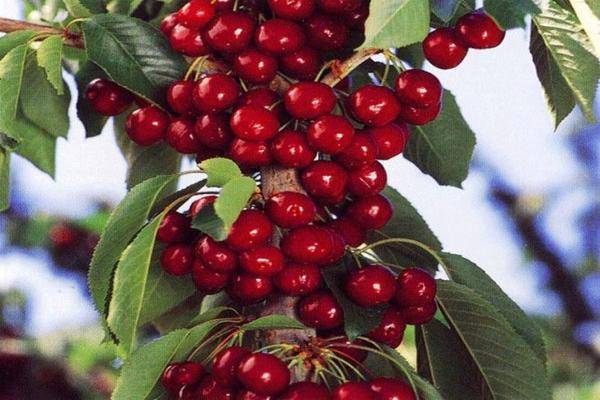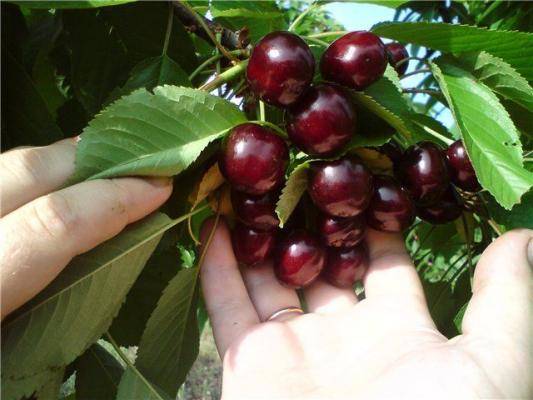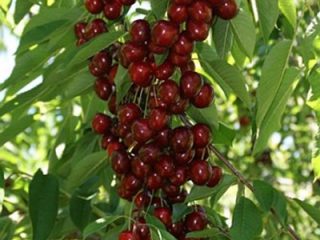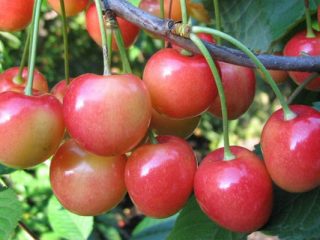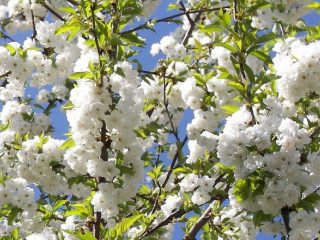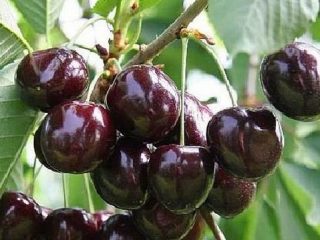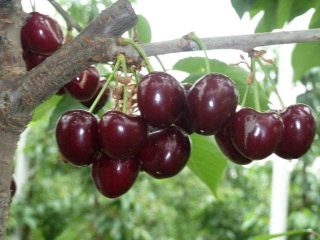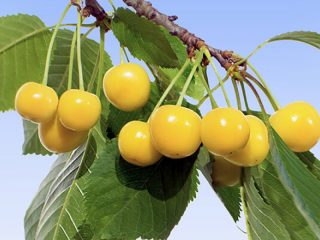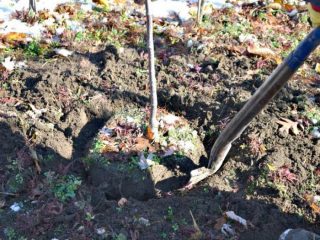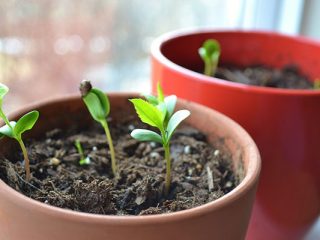Content
Columnar cherry Sylvia is one of the most popular varieties of compact fruit trees. Columnar trees gained their popularity primarily in industry, and then moved into households. Their clear advantage is their small size, which makes dense planting possible (at a distance of 1 meter).
History of selection
The Sylvia variety originates in Canada in 1988. They created it, like many other columnar cherry varieties, scientists K. Lapins, D. Jefferson and D. Lane. Obtained by crossing the Lambert Compact and Van varieties. Initially, this variety spread to Canada and then to the USA. The fruit conveyor for the collection and sale of these fruits lasts for 6 months - from May to October.
Description of the variety
Trees of this variety are characterized by:
- straight trunk no more than 3 meters long;
- practically no side shoots;
- decorative oval shape;
- no need for annual pruning.
The fruits of the Silvia cherry can be described as follows:
- large size;
- dark red color;
- high taste qualities;
- the pulp is dense and juicy;
- the peel is durable and not susceptible to cracking;
- retain their appearance and taste for a long time if stored correctly (in the refrigerator - about 3 weeks).
Silvia cherries can be grown in southern and central Russia, Ukraine and the southern part of Belarus without any problems. For more northern regions, careful treatment and insulation of trees will be required.
Characteristics
This variety is unpretentious to grow, but still has its own characteristics that you must know before planting.
Among the main characteristics of the columnar cherry Sylvia are:
- resistance to drought and frost;
- pollination, flowering and ripening;
- productivity;
- resistance to diseases and pests.
Resistance to drought and frost
This variety has average resistance to such weather conditions.
Pollination, flowering and maturation
Cherry Sylvia and Cordia, as well as Helena and Sam are mutually pollinating, so experts advise planting them nearby. Flowering is late, but the color can withstand frosts down to -2. Fruit ripening occurs in the first half of June (12-18th).
Productivity
Cherry fruiting lasts a week to a week and a half. The first harvest can be obtained already in the second or third year of the plant’s life. In the first and second years, experts recommend removing all the ovaries to allow the seedling to take root in a new place, but in the second year, many are already collecting fruits. The yield in the third year, with proper care, is about 15 kg per tree. Older trees can bring 50 kg per plant. Due to high fruiting, the life span of such trees is about 15 years.
Resistance to diseases and pests
The Silvia variety has shown high resistance to various diseases, including fungal ones.For better resistance to pests and protection from the sun, it is recommended to bleach the tree trunk.
Advantages and disadvantages
Among the advantages are:
- compact dimensions;
- decorativeness;
- large and tasty berries;
- resistance to frost, drought and atmospheric moisture;
- early maturation;
- Growing and caring for Sylvia cherries does not require much effort.
Among the disadvantages of this variety are:
- does not tolerate winds, especially northern ones;
- does not like excess moisture in the soil, which interferes with the supply of oxygen;
- despite its dislike for excess water, it does not tolerate severe drying out;
- need for abundant sunlight;
- does not love weeds and large vegetation.
Reviews of the columnar cherry Little Sylvia say that it has retained almost all the properties of its older sister, but has become even smaller in height and diameter - up to 2 meters and 0.5 meters, respectively. The fruits also ripen later.
Conclusion
Columnar cherries initially became popular among industrialists, but today they are increasingly appearing in household plots. Here it has also become a popular and favorite plant. Growing such cherries does not require much effort and gives excellent results. Based on reviews of Sylvia cherries, you can be convinced of the quality of these fruits and the advantages of this variety for gardeners.
Reviews
